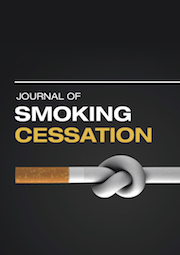Article contents
Bedouin Youth in Israel: Gender-Related Smoking and Non-Smoking Attitudes and Behaviour
Published online by Cambridge University Press: 21 February 2012
Abstract
The Bedouin are Muslim Arabs who have inhabited the Negev desert region of Israel under nomadic and seminomadic conditions for centuries. Today, the majority are living in urban settings with high levels of unemployment, poverty, and problem behaviour. Limited research exists of Bedouin youth, specifically their smoking attitudes and behaviour. This study examined 293 male and female high school-age youth with the WHO-CDC Global Youth Tobacco Survey instrument. Chi square and regression analyses were performed. Parent smoking behaviour, smoking if offered a cigarette, likelihood of smoking during the next 12 months and 5 years, and smoking behaviour among friends are significant factors that influence smoking regardless of gender status. Regression analysis shows cigarette use is influenced by gender status, parent(s) smoking behaviour, smoking behaviour among friends, being offered a cigarette by a friend, and the perception of males who smoke as being a positive social image. Smoking is a public health problem and cessation interventions are needed for Bedouin youth. Additional research with practical implications should focus on the high rate of tobacco use among males, the relation between psychosocial factors and smoking behaviour in urban and rural settings and the impact of formal education and community-based activities on smoking prevention and cessation.
Keywords
- Type
- Articles
- Information
- Copyright
- Copyright © Cambridge University Press 2009
- 1
- Cited by




